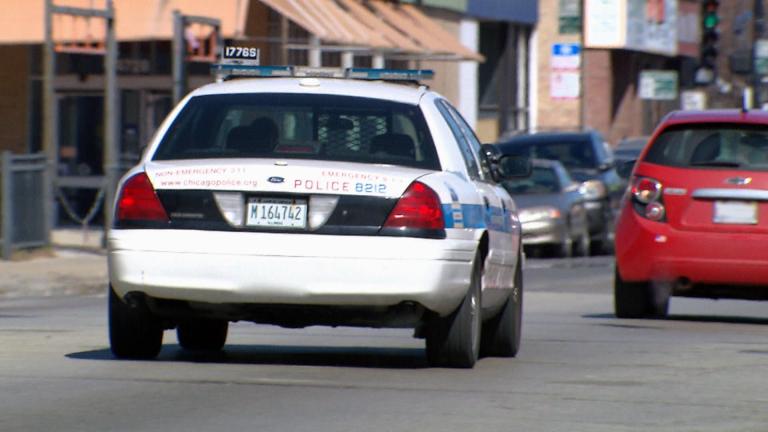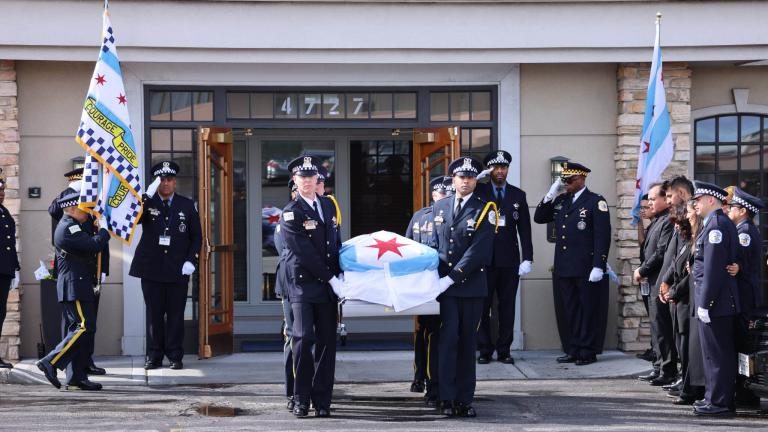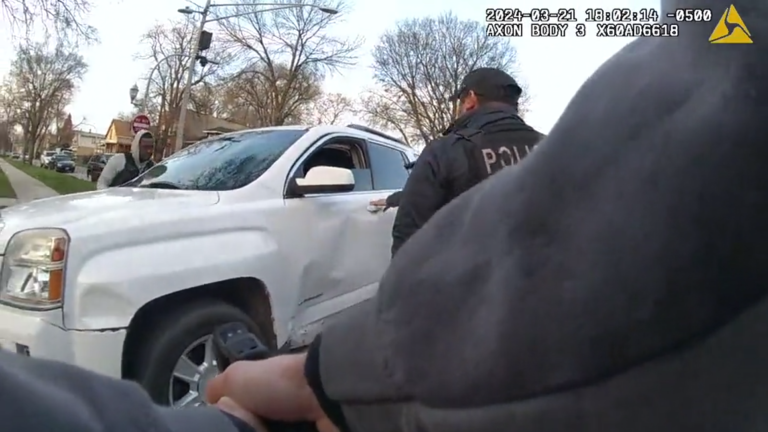A key City Council Committee on Tuesday unanimously endorsed a proposed eight-year deal with the city’s police union that would give the city’s more than 11,000 officers annual average raises of approximately 2.5% — while imposing new rules on officers suspected of misconduct.
Approximately 79% of the members of the Fraternal Order of Police Lodge 7 voted last month to accept the deal, putting the long-in-the-works collective bargaining agreement one vote away from final passage. The full Chicago City Council will consider the deal Sept. 14.
Retroactive to 2017 and ending in 2025, the proposed deal would mean an officer’s salary will rise by approximately 20% during the life of the agreement.
Chicago police officers — who are prohibited from striking — have been working under the terms of a contract originally inked in 2012 which expired more than four years ago.
“These negotiations were, to put it mildly, exceedingly difficult,” top city labor negotiator James Franczek told members of the City Council’s Workforce Development Committee.
If approved by the City Council, the agreement will cost the city approximately $375 million in 2022 to cover the cost of retroactively approving pay raises for officers from 2017 to 2021 and to cover the 2022 pay hike.
The city set aside $100 million for the cost of the contract in 2021, but the city needs an additional $275 million.
The city plans to refinance $1 billion in debt to generate $250 million in savings to cover the bulk of that cost, said Chicago Chief Financial Officer Jennie Huang Bennett.
Mayor Lori Lightfoot plans to release a detailed budget for 2022 in the coming weeks.
The proposed agreement for rank-and-file officers gives them the same economic package as the deal approved by police supervisors and members of the firefighters’ union, but includes an additional 0.5% average annual pay raise, officials said.
Ald. Raymond Lopez (15th Ward) warned progressive members of the City Council not to block the deal’s approval next week, noting that there was no guarantee it could get better.
“This is the best deal possible,” Lopez said.
Ald. Carlos Ramirez-Rosa (35th Ward), a member of the City Council’s progressive and socialist caucuses, asked Franczek what would happen if at least 26 members of the City Council voted to reject the deal.
That would lead to a “very, very roll-of-the-dice kind of process,” Franczek told Ramirez-Rosa, adding that a reaching a new agreement would likely take months — if not another year — adding to the longest contract negotiations in the city’s history.
The proposed deal would allow complaints submitted anonymously to be investigated, something the 2012 collective bargaining agreement with the Fraternal Order of Police prohibits, ending a 40-year ban.
In addition, the tentative agreement would prohibit the names of complainants from being disclosed to officers until immediately prior to their interview, which typically comes at the end of an investigation.
The Department of Justice criticized the ban on investigating anonymous complaints in a 2017 investigation of the police department, saying it meant many allegations were never made for fear of retaliation.
A new state law bans police unions’ collective bargaining agreements to require complainants to sign an affidavit when filing a complaint against a police officer. In addition, police unions must stop destroying disciplinary records, according to a 2020 ruling from the Illinois Supreme Court.
In addition, the proposed deal would no longer allow officers who use force against a member of the public to revise their statement to investigators after reviewing audio and video recordings of the incident.
Critics of the Chicago Police Department contend both of those provisions have been used by officers to uphold a code of silence that prevents officers guilty of misconduct from being disciplined.
However, the new contract continues to permit officers to wait 24 hours before speaking with investigators after a shooting. That measure has also been targeted by reform advocates.
David Johnson, Franczek’s law partner, said that provision was not altered because the Civilian Office of Police Accountability, the agency charged with investigating police shootings, routinely waits at least a week to interview officers involved in a shooting. In addition, other jurisdictions allow officers to wait longer periods of time before being interviewed by investigators, Johnson said.
“I don’t think everything was accomplished,” said Ald. Mike Rodriguez (22nd Ward).
In addition, the two sides were not able to reach an agreement to require officers to disclose whether they work a second job and how many hours they worked, city labor negotiator Mike Frisch told aldermen. That issue will be the subject of additional negotiations and may end up in front of an arbitrator, Frisch said.
The city’s contract with police captains, sergeants and lieutenants allows department officials to impose a 16-hour cap on working any job within a 24-hour period unless ordered by the department.
The proposed contract also funds the creation of a dedicated mental health ombudsman position, who will be a member of the union “focused on the mental health of officers,” officials said.
Three officers have died by suicide this year, according to department officials.
Contact Heather Cherone: @HeatherCherone | (773) 569-1863 | [email protected]








